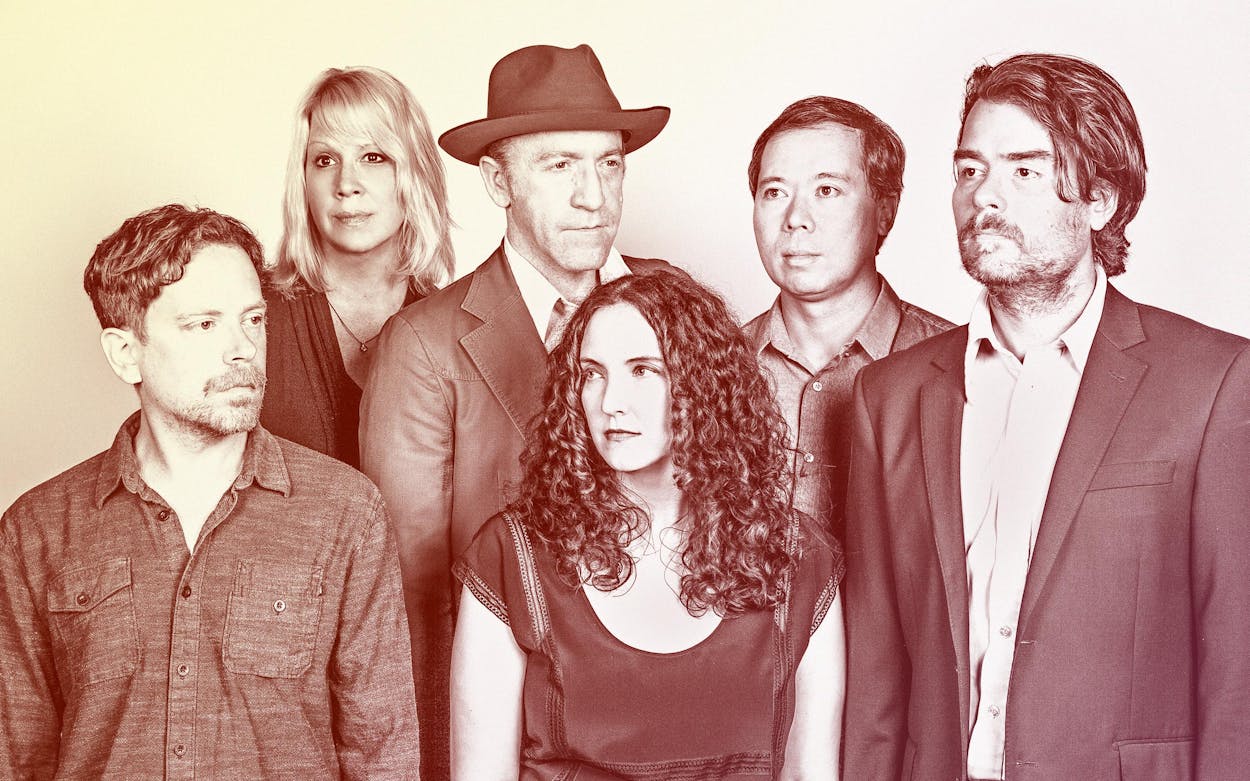WHO: The Texas Workforce Commission and Austin classical music group Montopolis.
WHAT: A new piece of hold music composed to be a little more empathetic for those in dire straits.
WHY IT’S SO GREAT: Last spring, Justin Sherburn, a composer for the Austin classical music group Montopolis, was in the same spot as hundreds of thousands of Texans: suddenly out of work amid the early days of the COVID-19 pandemic, he tried desperately to navigate a system that seemed to be buckling under the weight of all of the need. He spent hours calling the number to claim benefits through the Texas Workforce Commission, often finding himself placed on a seemingly interminable silent hold. Sherburn was unsure whether anyone who could help him would ever return to the line, and he had nothing to listen to except, occasionally, a busy signal—a repeating robotic beep he hadn’t heard much since the nineties. Its insistent drone told him only that his attempt to make contact with a human being had failed.
Like many artists, Sherburn processed his feelings about all of this creatively. He began composing an album for cello and piano, full of ambient tones and warm strings, imagining what sort of hold music the state agency could play while he waited. He played the piano, while his wife, the group’s cellist, performed the strings. They called the album Texas Workforce Commission Hold Music (description: “Ambient meditations inspired by the existential dread associated with navigating the corridors of government administration”). The eight compositions are titled after clichés familiar to anyone who’s spent a lot of time on hold—“Exceptionally High Volume”; “The Office Is Closed.” The band released the album in March, when they also created a phone number that listeners could call in order to hear the music the way it was intended to be heard: through their phones.
Listeners could also push a button and leave a message, which Sherburn says hundreds of them did, laughing at the joke of the album title or sobbing over the shared experience of trying to manage the bureaucratic process of claiming unemployment benefits. “It’s the craziest thing—we have all of these emotional, cathartic audio messages that have been left for us,” Sherburn said. “That’s my favorite part. The whole thing just draws out this emotion in people, and made this connection.”
The project not only found an audience among fans of Sherburn’s work with Montopolis, or with the Austin band Okkervil River, but also within the very agency he had spent the early days of the pandemic attempting to navigate. In April, after NPR featured the album, Sherburn received a message from Texas Workforce commissioner Bryan Daniel—who also connected with the material. Sherburn got on a Zoom call with Daniel and Brendon Anthony of the Texas Music Office, and discussed making the group’s Texas Workforce Commission Hold Music the Texas Workforce Commission’s actual hold music, which became official on Tuesday.
Grateful for the assistance he’d received during his time of unemployment, Sherburn offered the agency the license to use the material for free, which they accepted. “I was happy to give back,” Sherburn tells Texas Monthly. “I received unemployment checks for a year, and I honestly don’t know what I would have done without those funds.”
There are folks whose jobs are to think about hold music—teleconferencing companies, businesses that expect a high volume of calls, professionals in marketing and messaging—and while Sherburn isn’t typically in their number, Montopolis’s project recognizes one of the key tenets of the form: analog phone lines are a low-quality way to transmit sound, so complicated music rarely translates well over the receiver. Accordingly, a stripped-down recording like Montopolis’s album is an ideal piece of art for hold music. “There’s repetition, and a lot of things that you find in hold music, but with a much more empathetic and human approach,” Sherburn says. “The cello provides a lot of warmth you don’t normally hear in hold music.” It’s not the first time that Sherburn has tailored his work with Montopolis to the specifics of Texas, either: the group’s The Living Coast was recorded to provide a score for the Gulf Coast, while its Music for Enchanted Rock celebrates the pink-granite batholith north of Fredericksburg.
Nonetheless, Texas Workforce Commission Hold Music maintains a special place in Sherburn’s heart. Referring to a piece as “sounding like hold music” might in other circumstances come off as an insult, but in this case, that’s exactly what Sherburn had in mind, and he’s delighted the album is being utilized in that way. “I consider it one of my highest artistic achievements,” he says. “Nobody who is calling the Texas Workforce Commission wants to be on that phone call. Having our music give a little comfort to those people thrills me to no end.”
- More About:
- Music
- Best Thing in Texas
- Austin Music
- Austin








